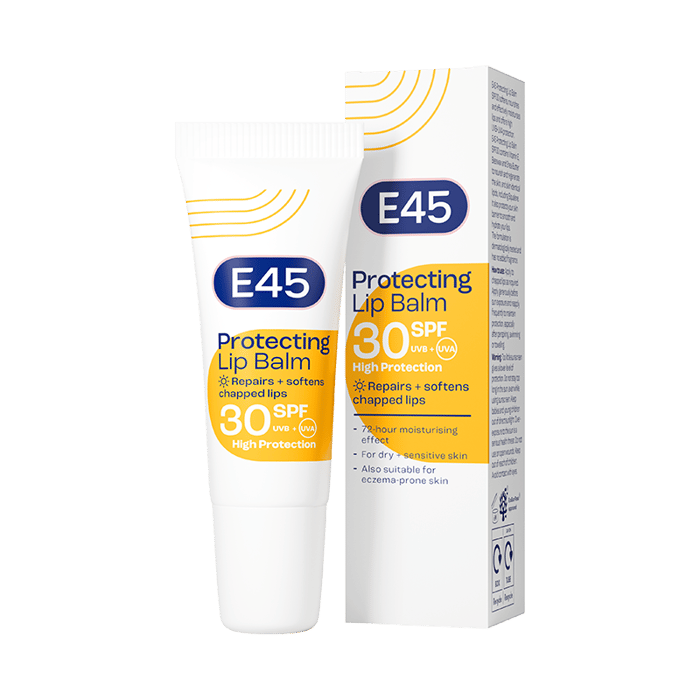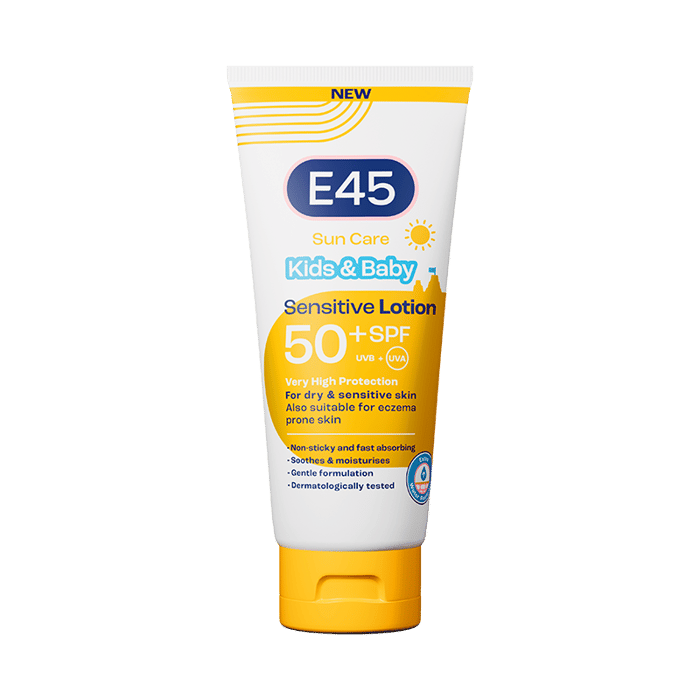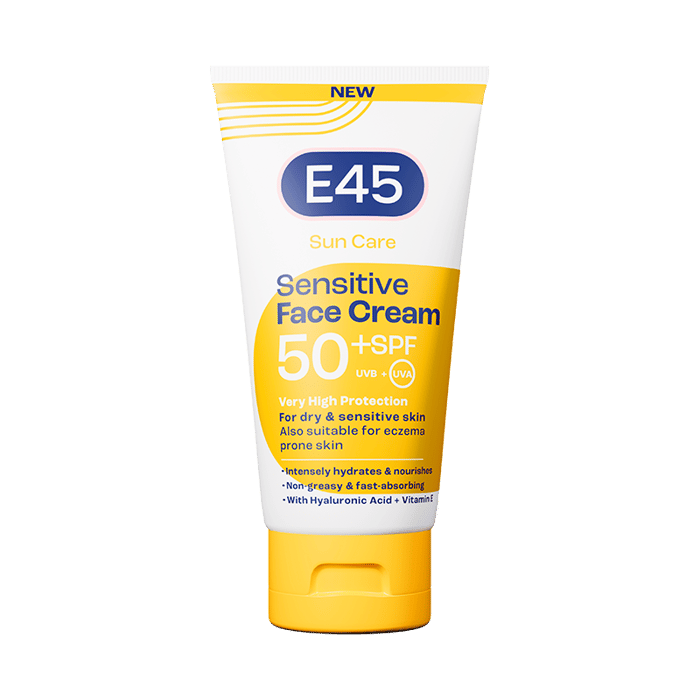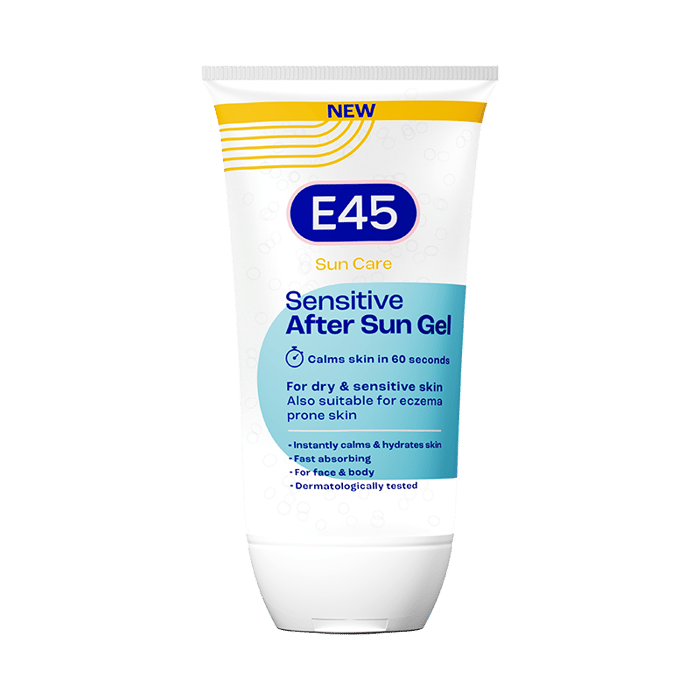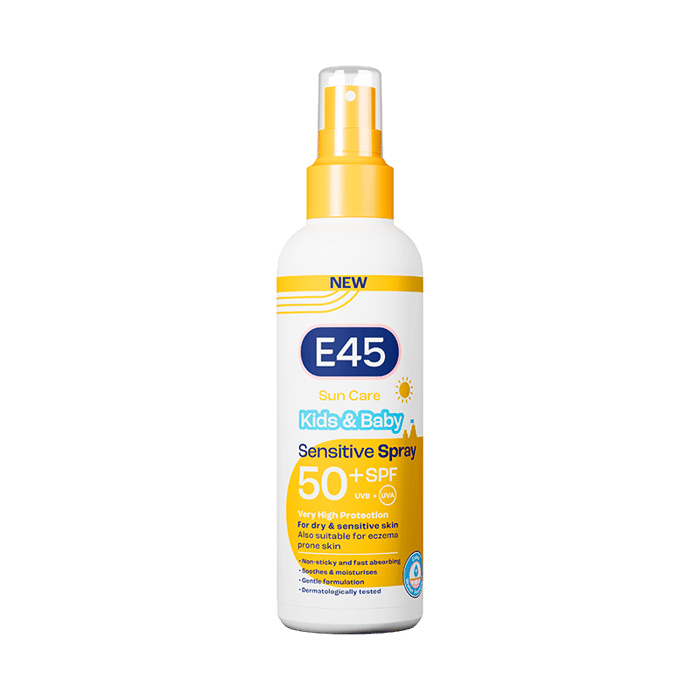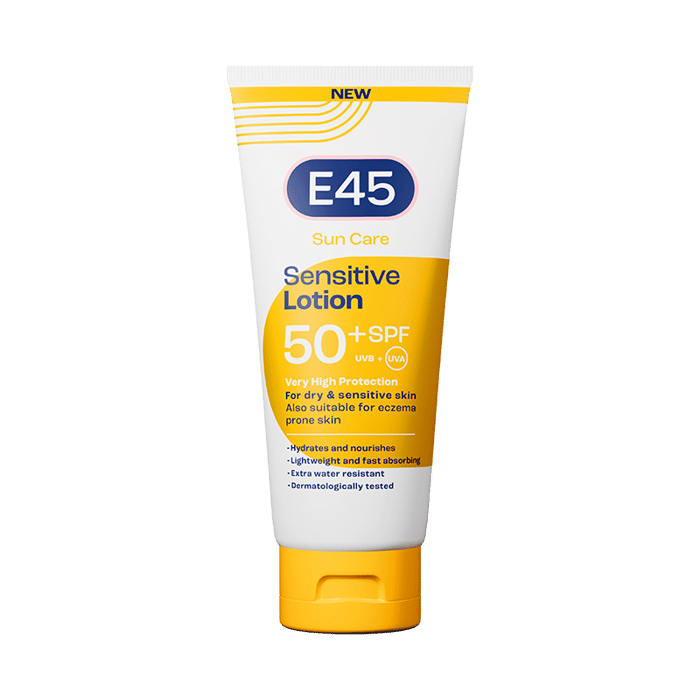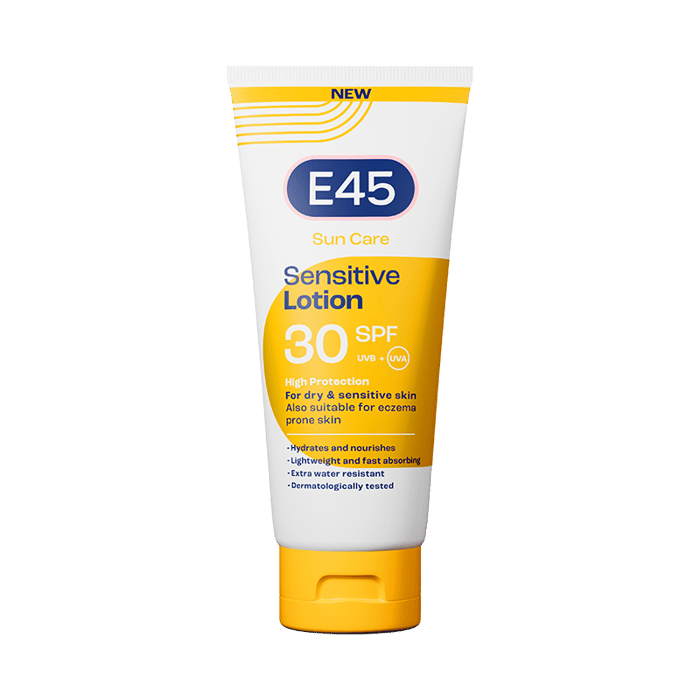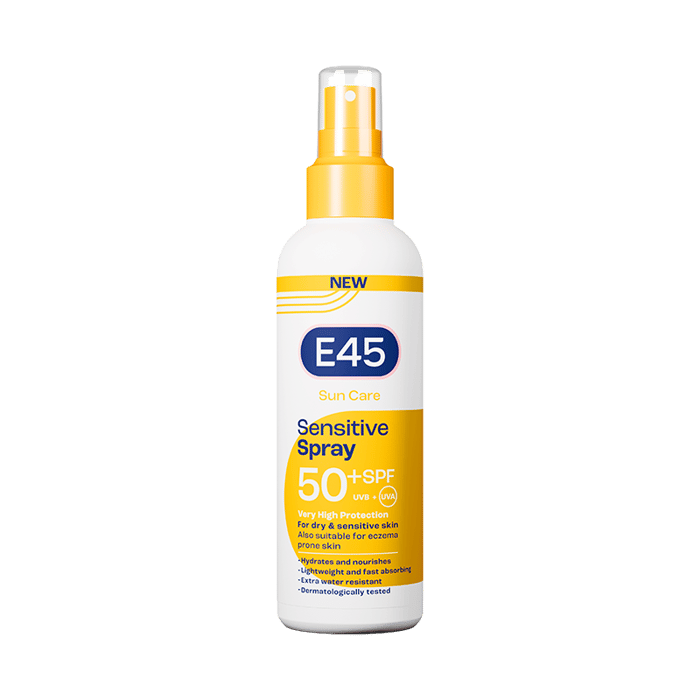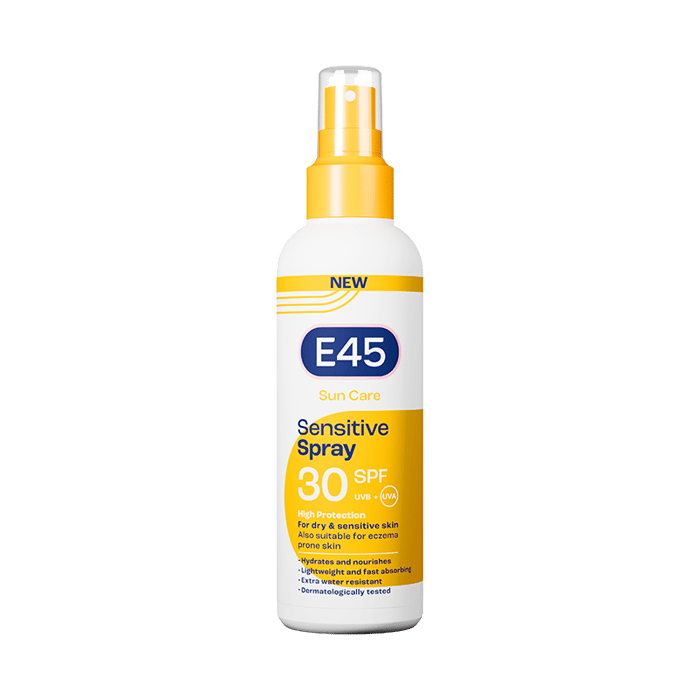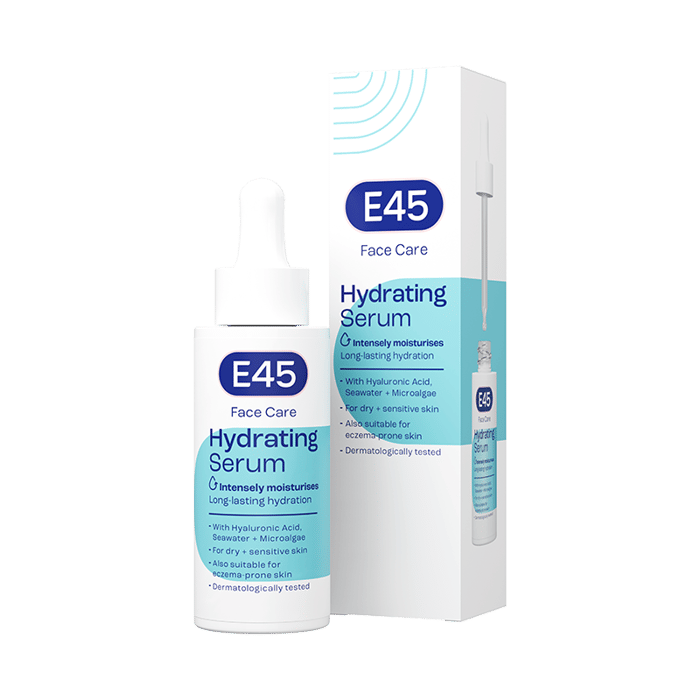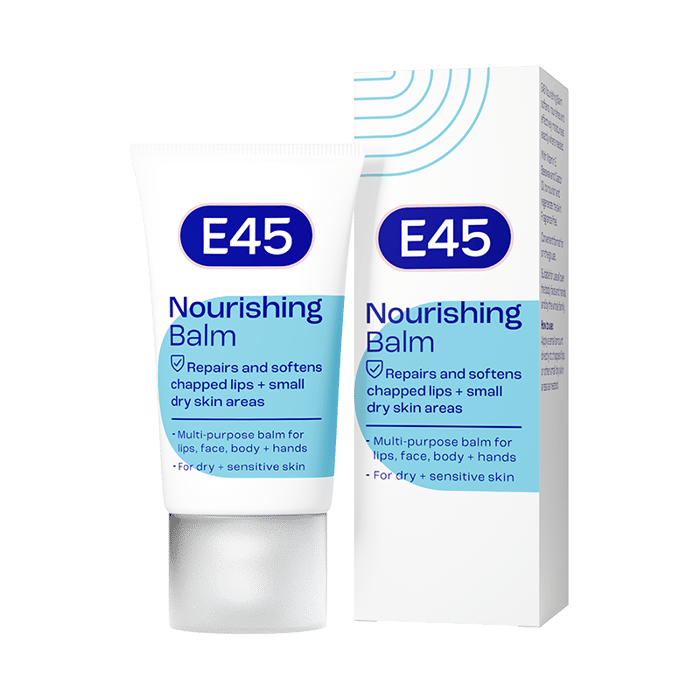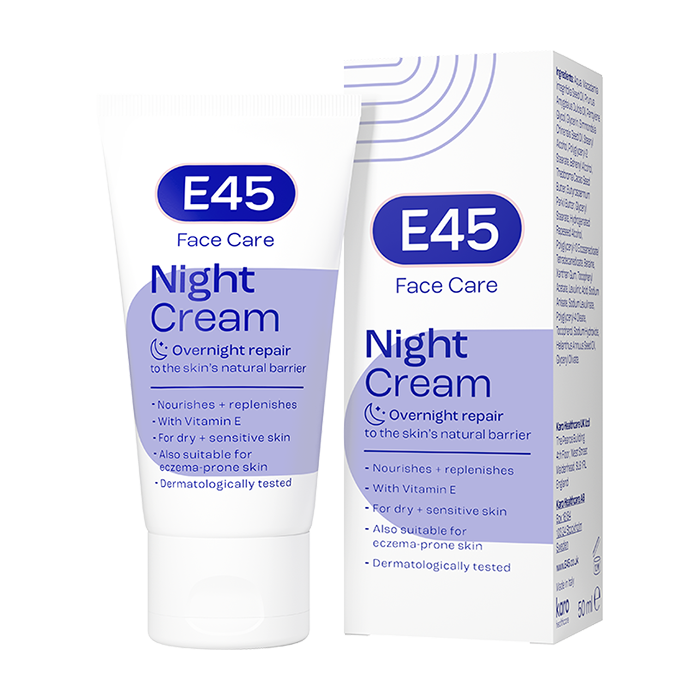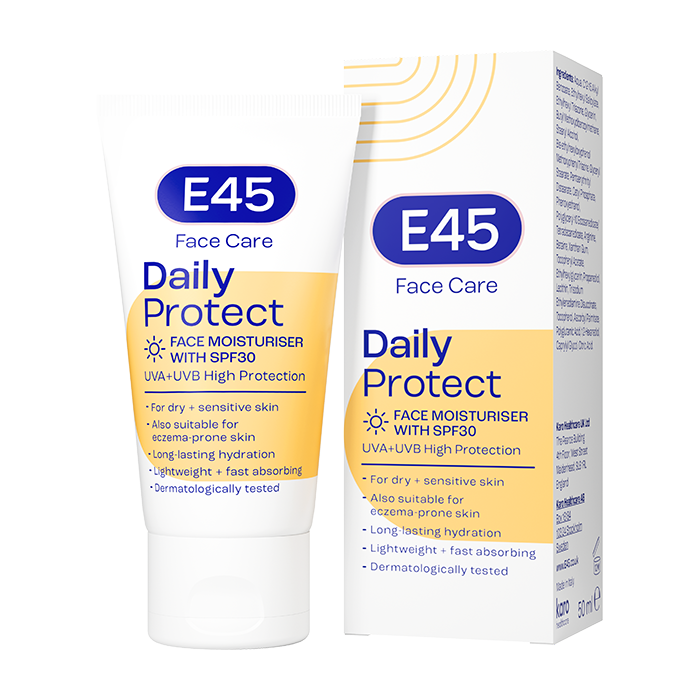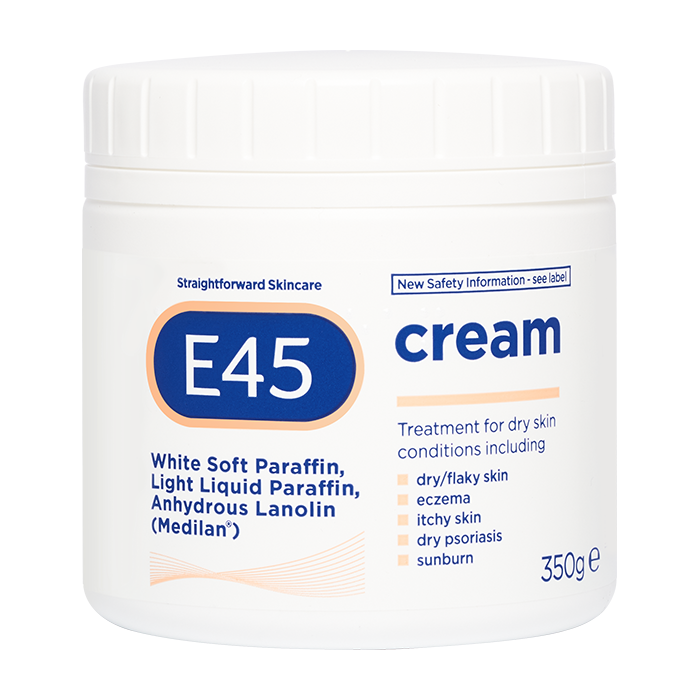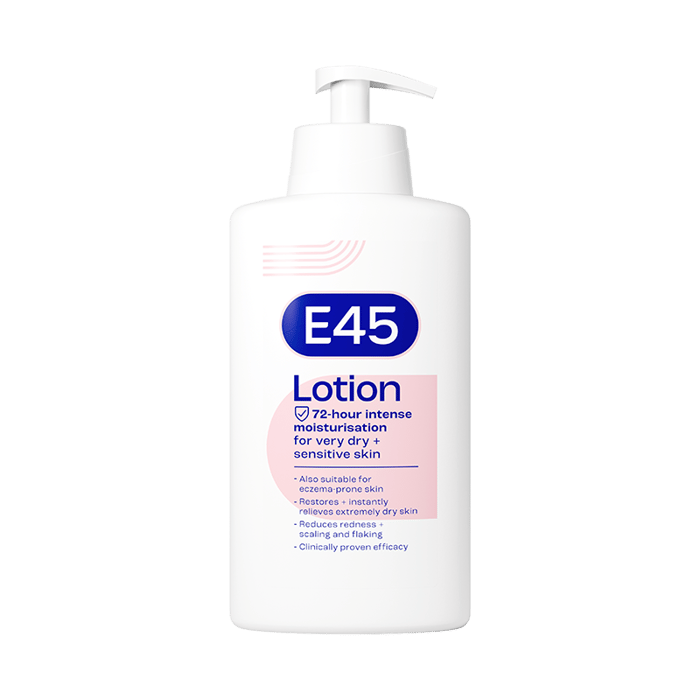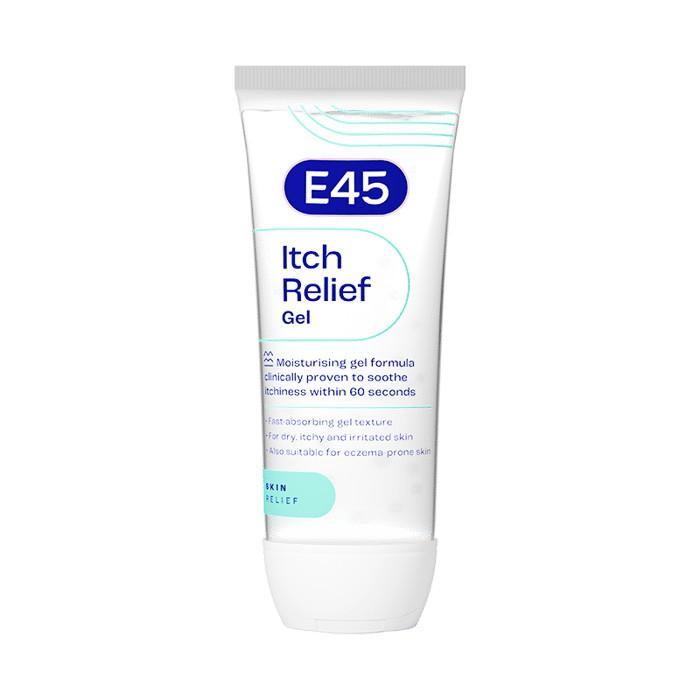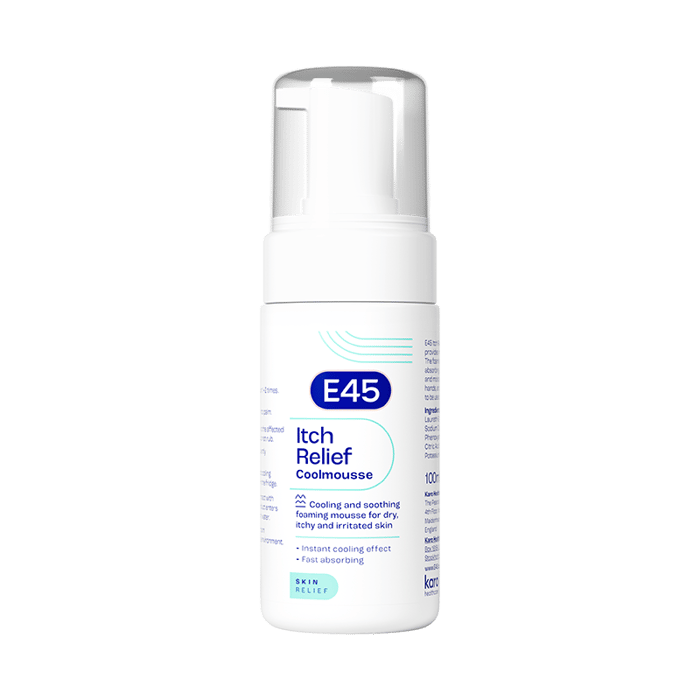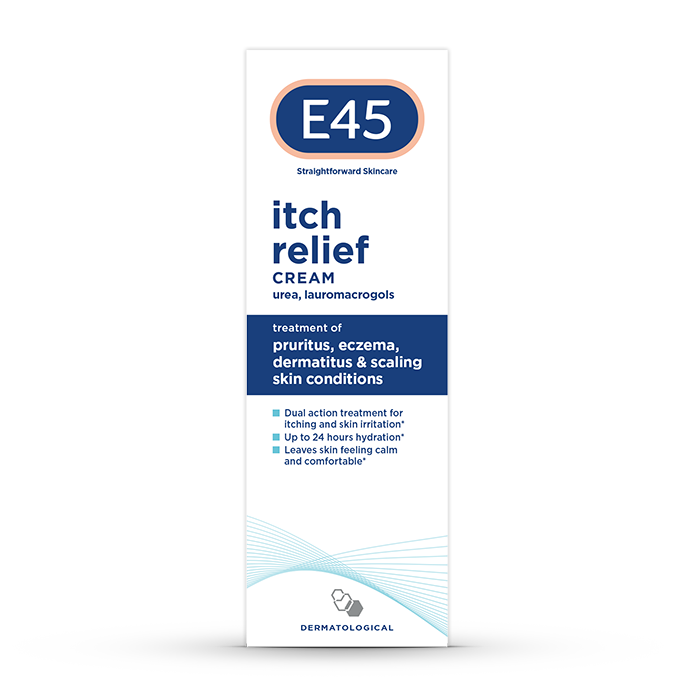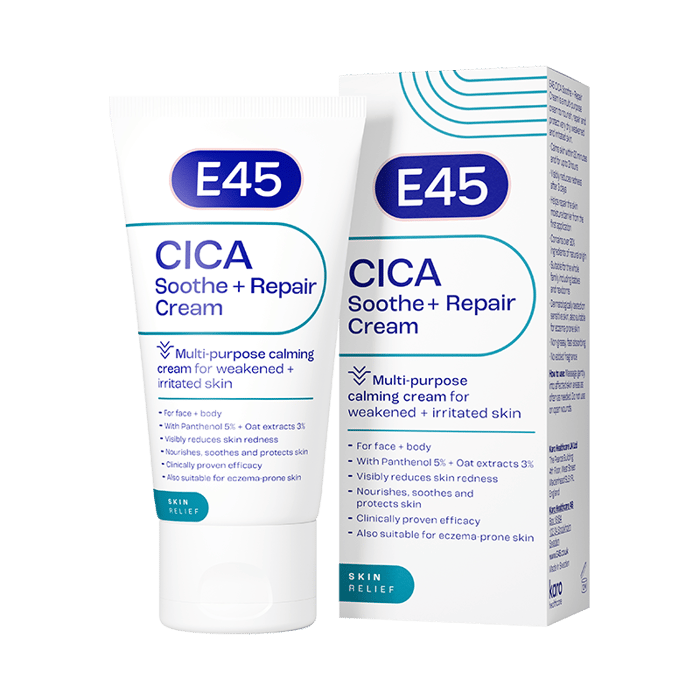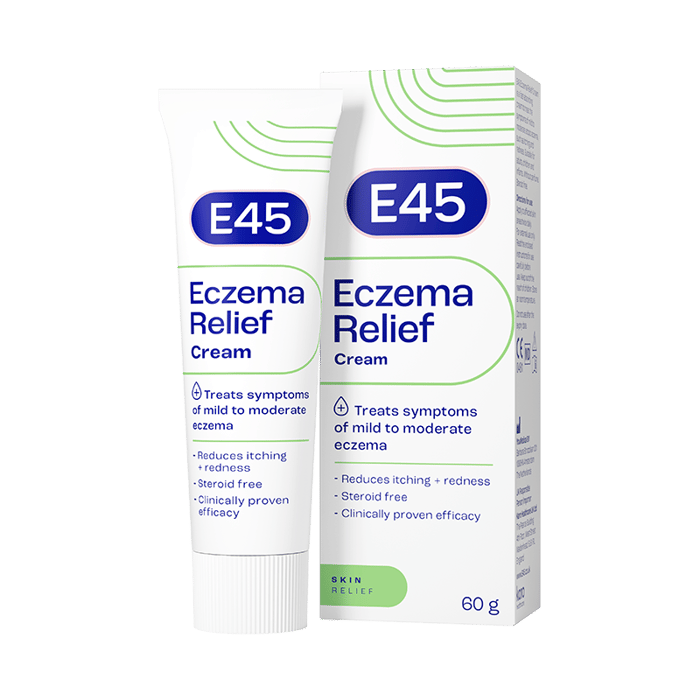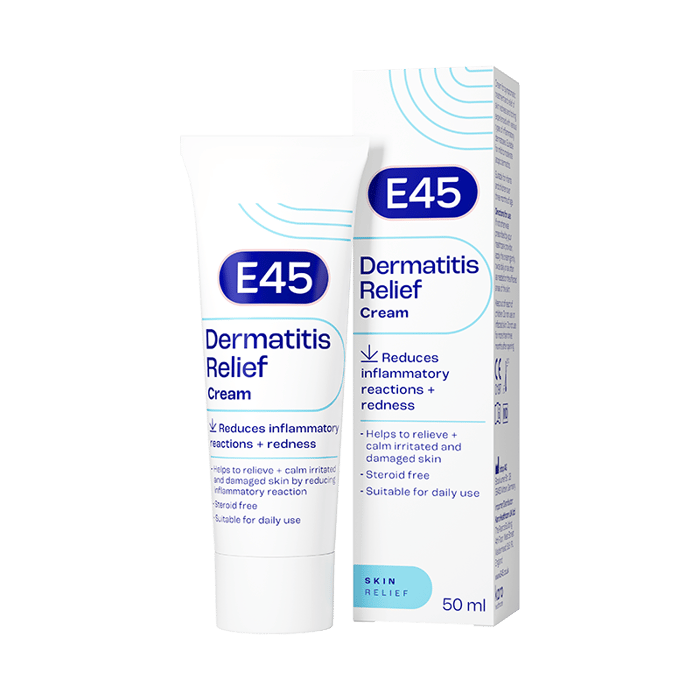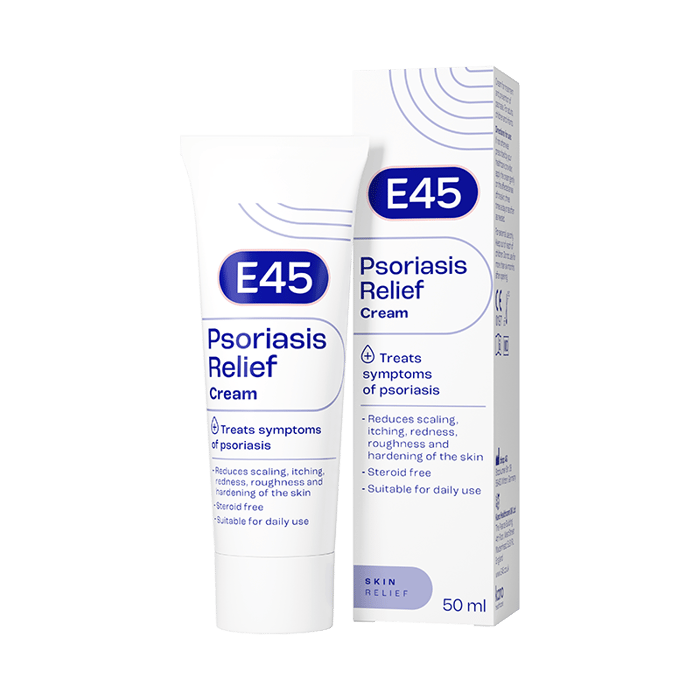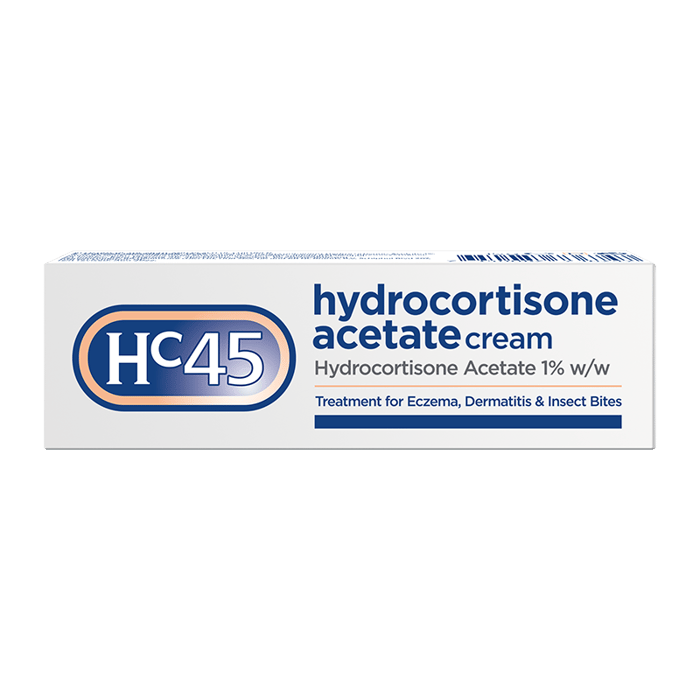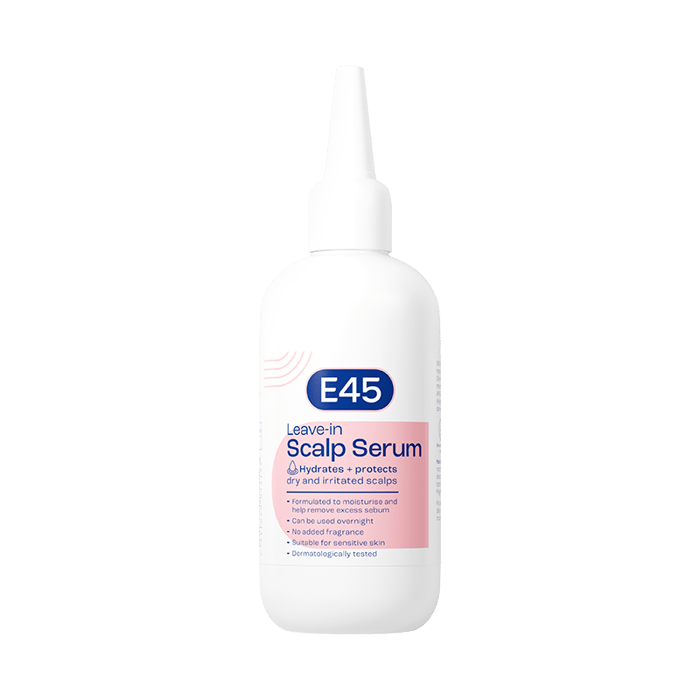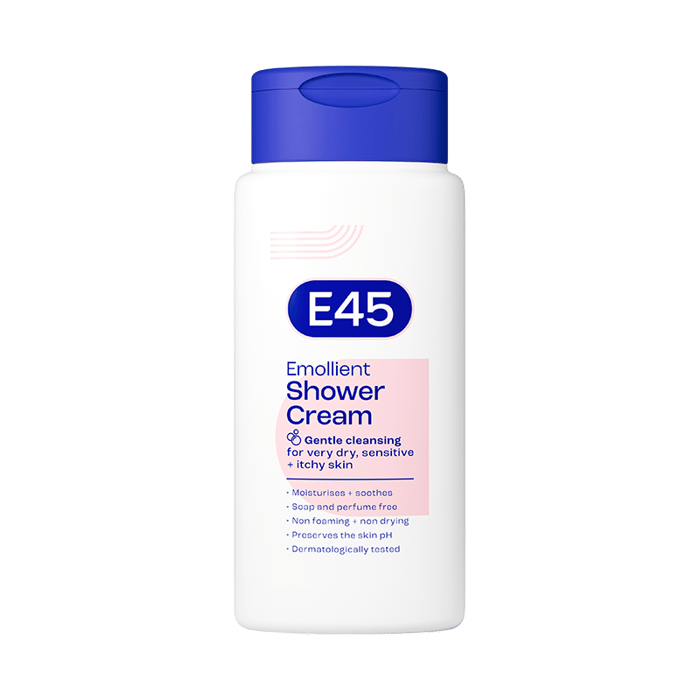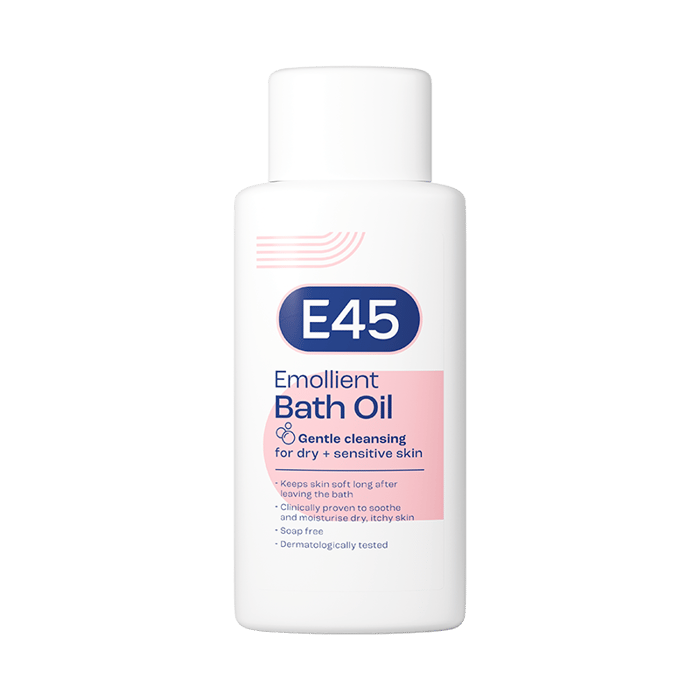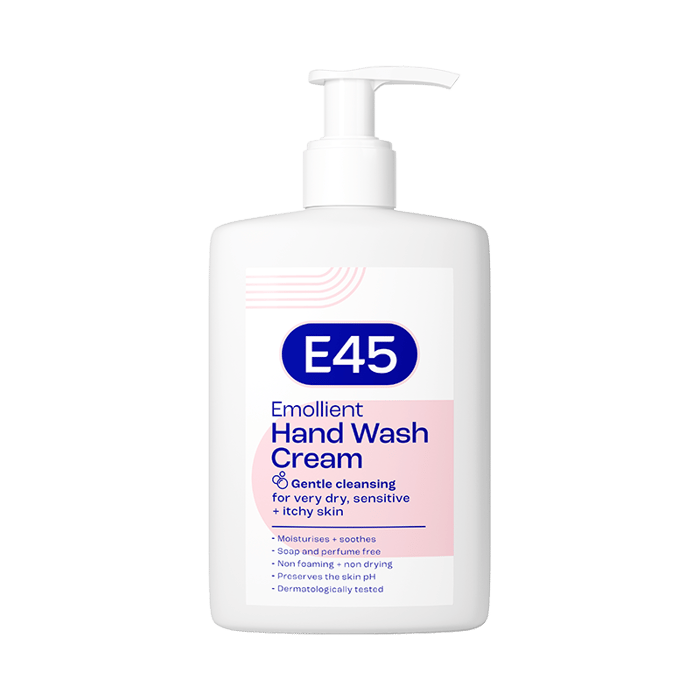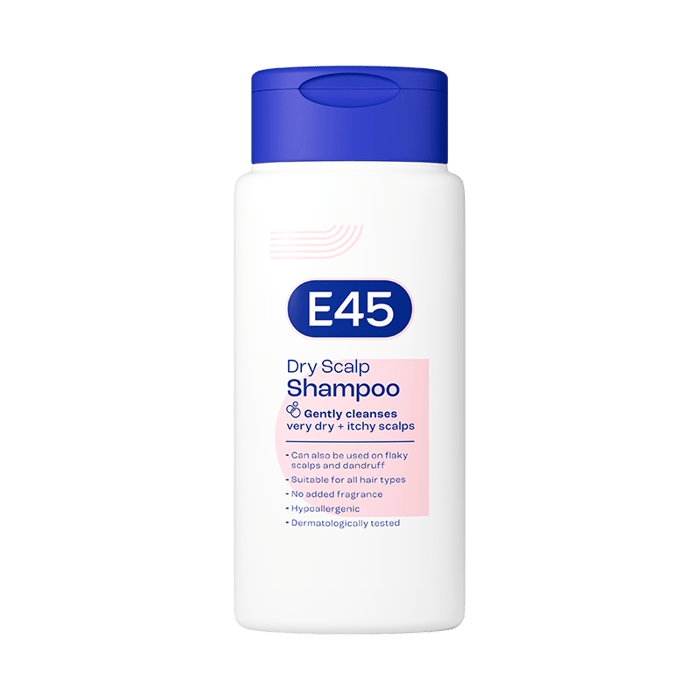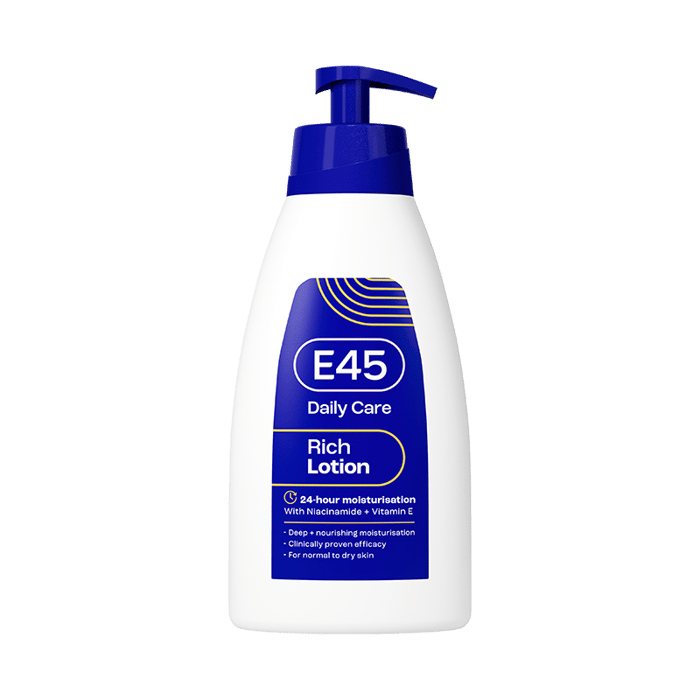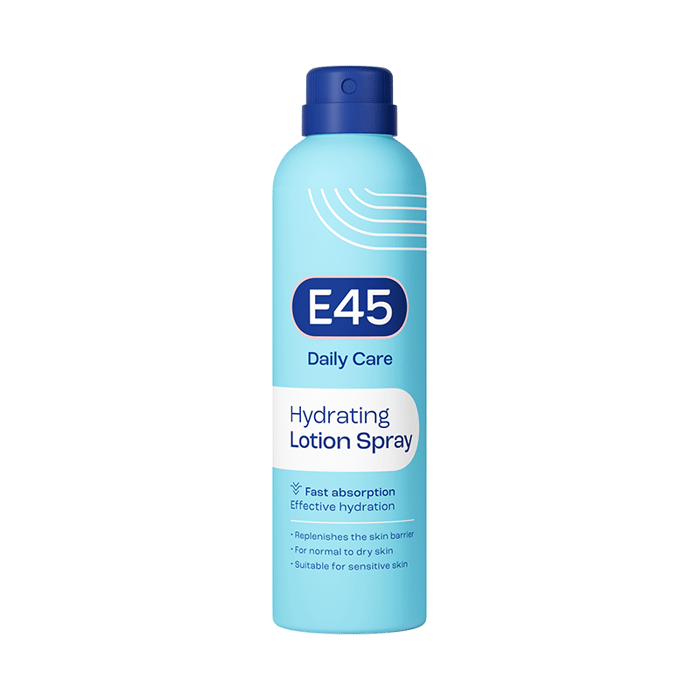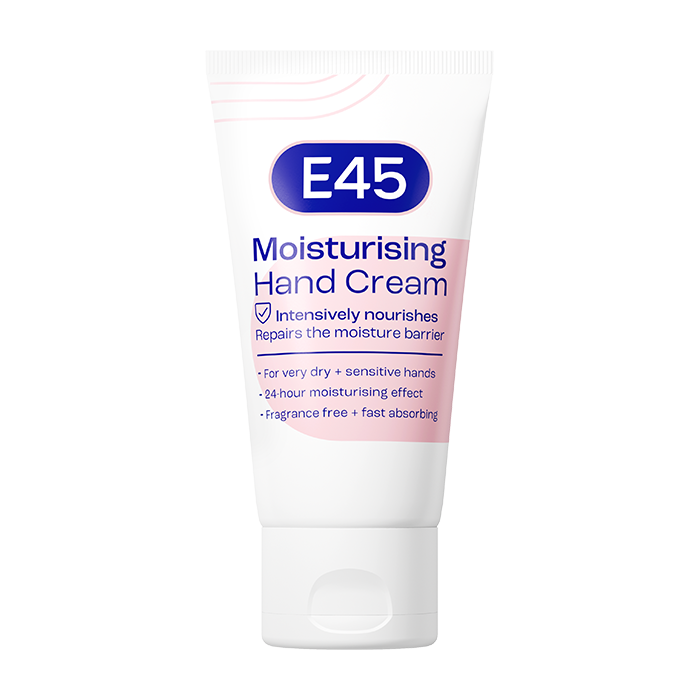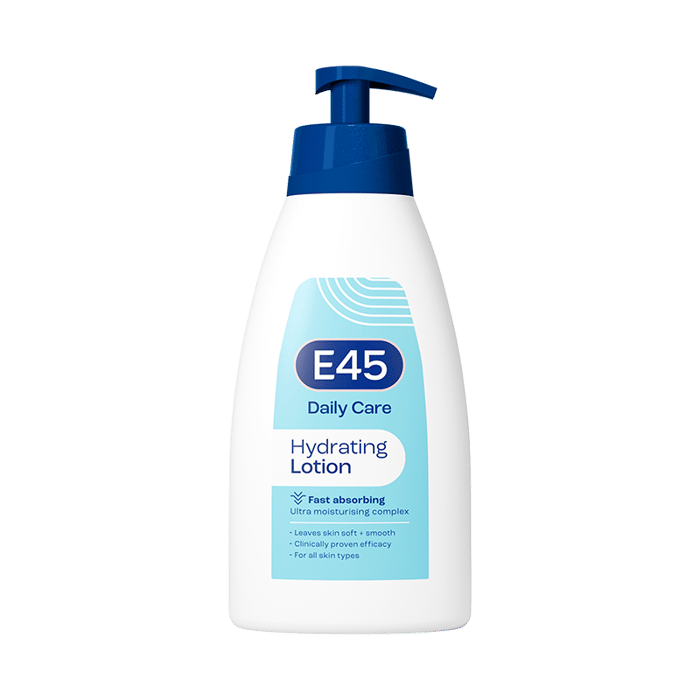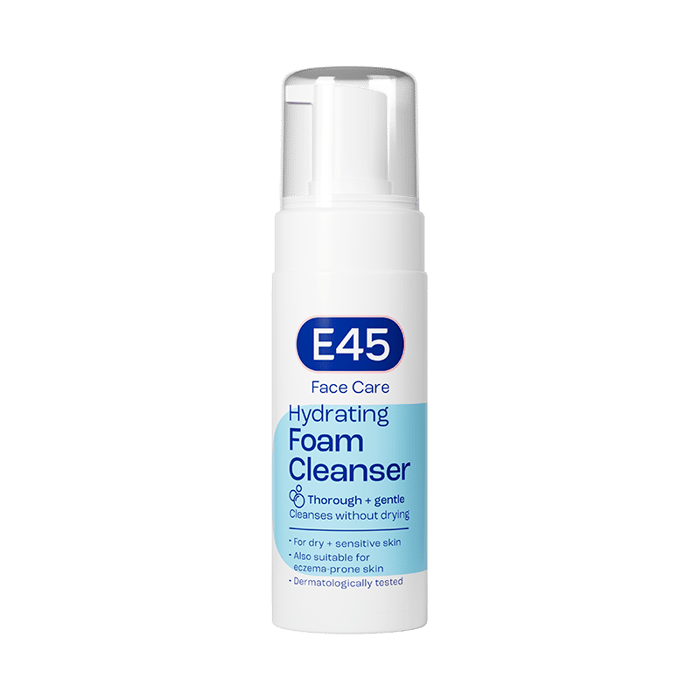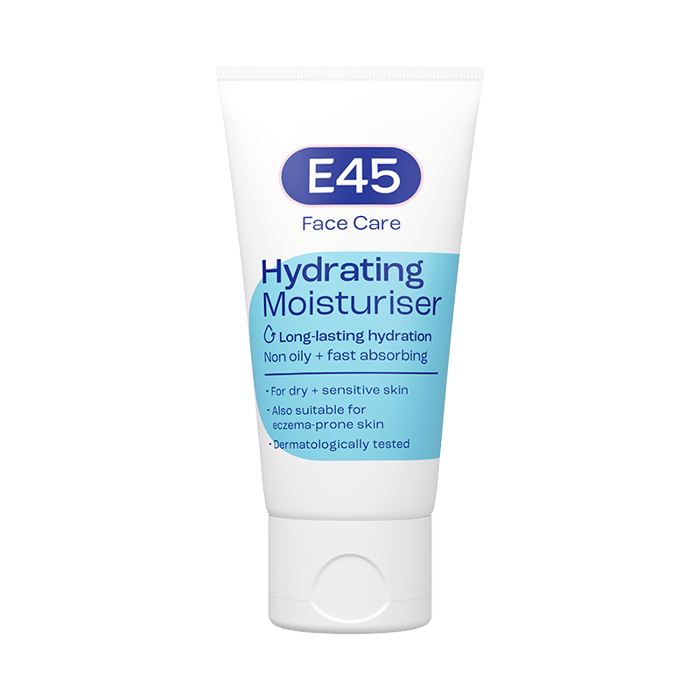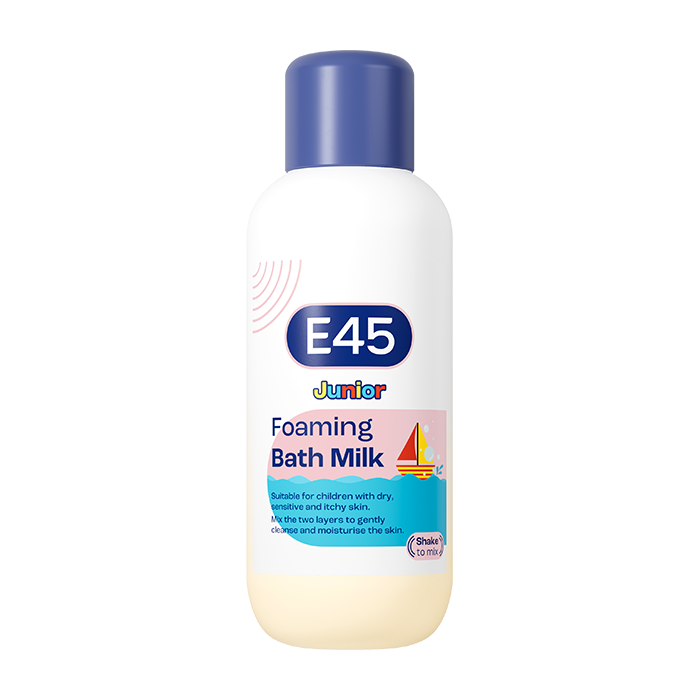Eczema and sun exposure: Pros, cons, protection and tips
The relationship between eczema and the sun is a complicated one: for some, exposing the skin to sunlight can be helpful, but for others, it can exacerbate the condition and cause flare-ups. In this article, we’ll dive into how the sun and products like sun cream can affect eczema, and share tips for how to manage eczema in the sun. To find out more about eczema as a skin condition, check out our Eczema guide.
Can sun exposure cause eczema?
Eczema flare-ups as a result of sun exposure are not uncommon and can vary in severity. Individuals may experience:
- Increased redness
- Intense itching
- Skin irritation
In more severe cases, these symptoms can cause small blisters or a heat rash, which can be particularly uncomfortable. These symptoms might resemble other sun-related skin issues, such as sun poisoning or polymorphic light eruption (PLE), but are specifically tied to the underlying eczema condition.
Causes
Sun-induced eczema flare-ups primarily stem from the skin’s reaction to UV rays. While sunlight is essential for health, overexposure can be very harmful, especially for sensitive skin. The heat from the sun can also aggravate eczema, as it causes sweating, which can irritate the skin further. Additionally, conditions like PLE or sun poisoning, which involve sensitivity to sun exposure, can exacerbate the symptoms of eczema, leading to more severe skin reactions. (Reichenberger, Stoff, & Richter, 2008)
Treatments
Managing sun-induced eczema involves a mix of home remedies and protective measures. Here are some strategies:
Limit sun exposure: Avoid being in the sun during peak hours, typically between 10 a.m. and 4 p.m., when UV rays are strongest. Seeking shade and staying indoors can significantly reduce the risk of flare-ups.
Wear protective clothing: Opt for long-sleeved shirts, trousers and wide-brimmed hats made from breathable fabrics to shield your skin from the sun while maintaining comfort.
Use gentle sunscreen: Apply a broad-spectrum sun cream with an SPF of at least 30. Look for products specifically designed for sensitive skin, which are typically fragrance-free.
Cool compresses: Applying a cool, damp cloth to the affected areas can help soothe the skin and reduce itching and redness.
Moisturise regularly: Keep your skin hydrated with a gentle, fragrance-free moisturiser. Regular application, especially after bathing, can help maintain the skin’s natural barrier. Our E45 Cream is emollient cream for dry skin conditions including eczema.
Hydrate: Drinking plenty of water helps maintain overall skin hydration, which can help to manage eczema symptoms.
Avoid scratching: Scratching can aggravate the skin and lead to more severe irritation or infection. Try to keep your nails short and consider wearing gloves at night to prevent scratching in your sleep.
If home remedies don’t alleviate your symptoms, or if the flare-ups are severe, seek professional advice. A healthcare professional can provide tailored advice and may prescribe treatments like topical corticosteroids or other medications to manage the condition effectively.
Can sunscreen cause eczema?
Sunscreen, while essential for protecting the skin from harmful UV rays, can frustratingly be a trigger for eczema in some people. The use of sun cream may lead to an eczema flare-up, which presents as a rash that is often itchy and inflamed. This rash commonly appears on the neck, arms or any area where the sun cream has been applied. It may closely resemble an allergic reaction or a heat rash, with symptoms like redness, small bumps and sometimes a slight swelling.
Causes
The reaction to sun cream is typically caused by certain ingredients found in the product. Chemicals commonly used for UV protection or added fragrances can irritate sensitive skin, leading to an eczema outbreak. It’s also possible for a sun cream’s texture or other additives to exacerbate the condition. Understanding the ingredients in your sunscreen is key to preventing flare-ups. To find sun creams that are gentle on sensitive skin, check out our Sun Cream range.
Treatments
Successfully managing eczema triggered by sun cream involves both preventive and responsive measures.
Choose fragrance-free sun creams: The fragrances used in sun creams can sometimes irritate sensitive skin or cause allergic reactions.
Patch test new products: Before applying a new sun cream, do a patch test. Apply a small amount to a discreet area and wait 24-48 hours to check for any adverse reactions.
Moisturise before application: Applying a moisturiser before sun cream can create a protective barrier between the skin and potential irritants in the sun cream. Try using our Moisturising Lotion before applying sun cream.
Rinse off after sun exposure: After spending time in the sun, gently rinse off the sun cream with lukewarm water and a mild, fragrance-free cleanser to remove any residues that could irritate the skin.
Soothing remedies for flare-ups: If a flare-up occurs, cool compresses and aloe vera can provide immediate relief. Continue to moisturise the affected area with a gentle, eczema-friendly product. Avoid scratching the irritated skin to prevent further inflammation.
Seek medical advice for severe reactions: If the skin reaction is severe or persists despite home care, it’s important to consult a dermatologist. They may prescribe medicated creams or recommend alternative sun protection strategies.
By being mindful of the sunscreen you choose and how you use it, you can enjoy the benefits of sun protection while minimizing the risk of an eczema flare-up. Always remember, your skin’s needs are unique, and what works for others may not work for you. Stay informed and attentive to how your skin reacts, and don’t hesitate to seek professional advice when needed.
Can sun exposure be good for eczema?
The effect of sunlight on eczema can differ greatly from person to person, depending on their unique skin condition and the specific type of eczema they have.
For certain types of eczema, like dyshidrotic eczema, sun exposure, particularly to UVA1 radiation, has been found to alleviate symptoms. Similarly, individuals with seborrhoeic eczema often find that their condition improves with sun exposure. In fact, narrow-band ultraviolet-B phototherapy, a treatment involving controlled exposure to UV rays, is sometimes used to manage this type of eczema effectively.
On the flip side, sun exposure can also have negative effects, particularly for eczemas that are photoallergic or phototoxic in nature. These types of eczema are sensitive to UV radiation and can be exacerbated by it, especially when combined with certain medications or external factors.
For some living with eczema, sun exposure might bring relief, while for others, it can lead to the worsening of symptoms. That’s why it’s important to see personalised expert advice in order to manage eczema effectively.
If you’re considering using sun exposure as part of your eczema management plan, it’s advisable to start with short, controlled periods of sun exposure and observe how your skin responds and to always discuss it with a healthcare professional first. And remember, protecting your skin with suitable sun creams, especially those formulated for sensitive skin, is essential. (Letic, 2009)(Palmer & Hawk, 2004)(Jazienicka, Kozłowicz, Sokołowska, & Kwiatek, 2014)
Conclusion
Navigating sun exposure and sun cream whilst living with eczema can be challenging. Everyone’s skin reacts differently, and what works for one person may not work for another. It can be helpful to speak to a healthcare professional about your specific type of eczema and whether or not sun exposure could be beneficial. To find out more about protecting your skin in the sun, check out our Sun Safety guide.
FAQ
How do you get rid of sun-induced eczema?
To alleviate sun-induced eczema, minimise sun exposure and wear protective clothing. Use a gentle, fragrance-free moisturiser, like our E45 Cream, to soothe the skin. Cool compresses can also help reduce irritation. If symptoms persist, speak to a healthcare professional.
How long does sun-induced eczema last?
The duration of sun-induced eczema varies depending on the severity and individual skin response. Typically, symptoms improve within a few days to a week with proper care. However, if the condition persists or worsens, it’s advisable to seek medical advice.
How do you treat photosensitive eczema?
Treatment for photosensitive eczema includes avoiding triggers like direct sun exposure and using sun creams suitable for sensitive skin. Wearing UV-protective clothing and seeking shade can also be beneficial. If over-the-counter treatments don’t help, a dermatologist may recommend specialised therapies.
How do you treat sun-induced dermatitis?
Sun-induced dermatitis treatment involves avoiding further sun exposure and applying cool compresses to the affected area. Use mild, soothing skin care products, and consider over-the-counter anti-inflammatory creams if needed. For persistent or severe cases, consult a healthcare professional for targeted treatment options.

